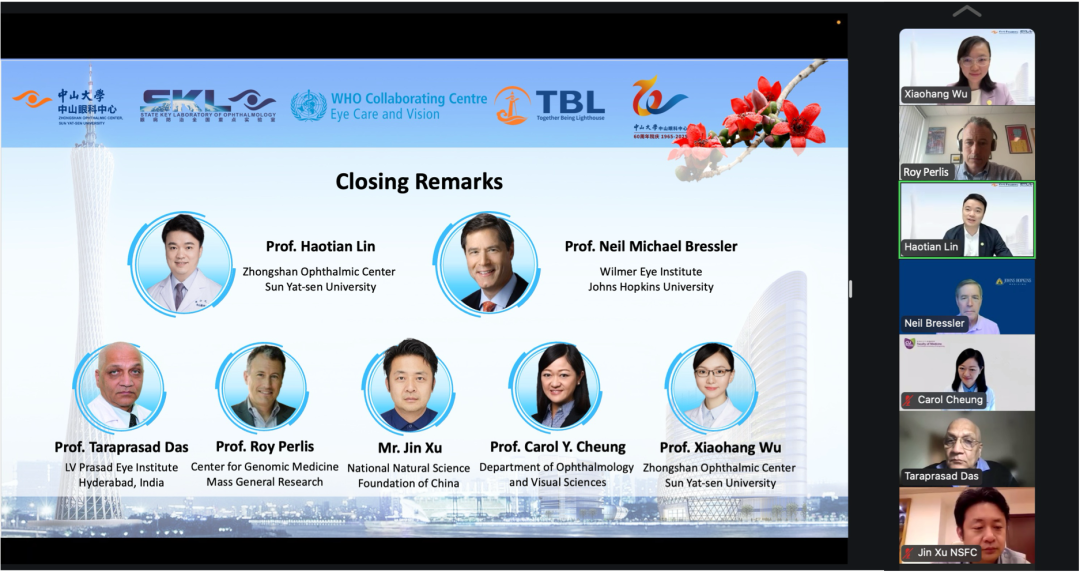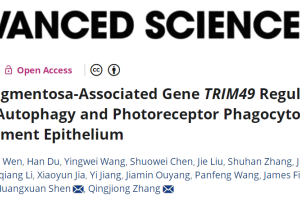
On June 25, 2025, the ARVO Special Interest Group (SIG) meeting on "Challenges and Prospects of AI Vision Research Collaborations Across Nations" was successfully held online. Zhongshan Ophthalmic Center (ZOC) of Sun Yat-sen University and Wilmer Eye Institute of Johns Hopkins University served as the co-chairing institutions for this thematic symposium. Esteemed experts from China, the United States, India, and other countries and regions gathered both online and offline to engage in dynamic discussions on the challenges and prospects of international collaboration in AI-driven vision research.
The meeting was co-chaired by Prof. Lin Haotian, President of ZOC, and Prof. Neil Bressler of Wilmer Eye Institute at Johns Hopkins University. Speakers and panelists included Prof. Taraprasad Das from the L V Prasad Eye Institute (India), Prof. Roy Perlis from the Massachusetts General Hospital Research Institute, Xu Jin from the National Natural Science Foundation of China (NSFC), Prof. Carol Y. Cheung from The Chinese University of Hong Kong, and Associate Prof. Wu Xiaohang from ZOC.
Centered on the theme "Challenges and Prospects of AI Vision Research Collaborations Across Nations," the symposium explored strategies to overcome barriers and jointly advance the revolutionary applications of AI in ophthalmic diagnosis and treatment, vision research, and public health.
During the discussion session, participants exchanged views on key issues in international medical AI collaboration, including policy regulation, ethical guidelines, funding ecosystems, and data governance. They shared practical experiences and offered constructive suggestions from diverse perspectives on the perspectives of international academic organizations, journals, foundations, and researchers.


Thematic presentations and discussion session
About ARVO
The Association for Research in Vision and Ophthalmology (ARVO) is the world's largest and most influential professional organization dedicated to advancing vision science and ophthalmology through knowledge sharing and international collaboration. Its Special Interest Groups (SIGs) are designed to facilitate in-depth exploration of specific cutting-edge or interdisciplinary topics.











